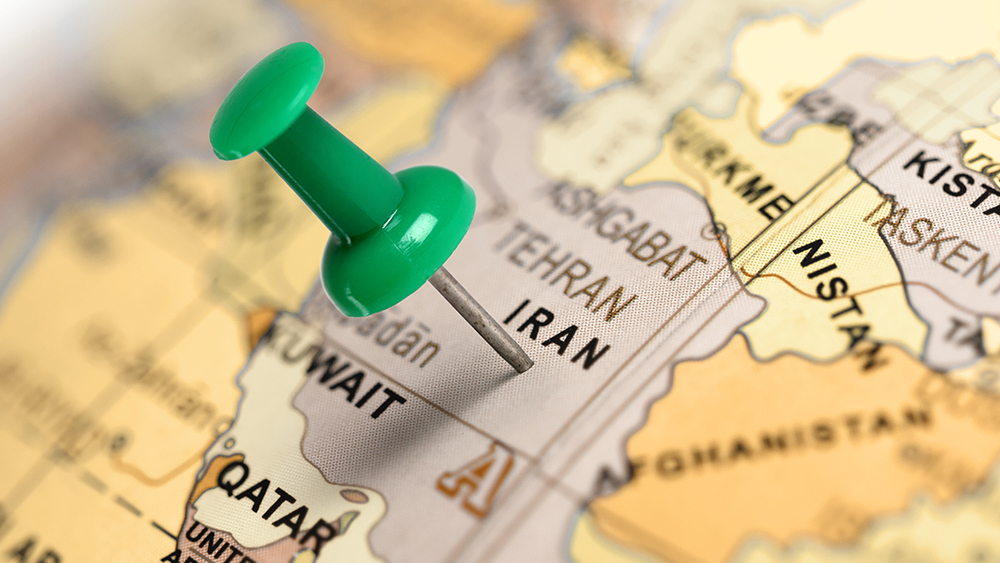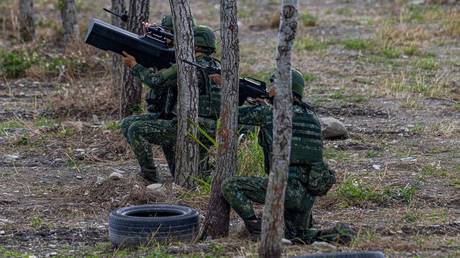Study Linking US Sanctions to Venezuelan Deaths Buried by Reuters for Over a Month
from The Anti Media:
 I emailed Stephanie Nebehay of Reuters on May 22 about her article, “Venezuela Turns to Russia, Cuba, China in Health Crisis” (5/22/19). Her article depicted the impact of US sanctions as an allegation that Venezuelan government officials are alone in making.
I emailed Stephanie Nebehay of Reuters on May 22 about her article, “Venezuela Turns to Russia, Cuba, China in Health Crisis” (5/22/19). Her article depicted the impact of US sanctions as an allegation that Venezuelan government officials are alone in making.

The article stated:
The opposition blames [medical shortages] on economic incompetence and corruption by the leftist movement in power for two decades, but [President Nicolás] Maduro says US economic sanctions are the cause.
I asked why the piece made no mention of a study (CEPR, 4/25/19) released a month earlier by economists Mark Weisbrot and Jeffrey Sachs, which directly linked US sanctions to 40,000 deaths in Venezuela since August of 2017.
Her reply to me on May 23 was quite telling:
I was not aware of that study, but am now and will bear in mind.
It would indeed have been impossible for a Reuters reporter to be aware of the study if they depended only on Reuters articles to keep informed. The news agency hadn’t mentioned the study since it was released, never mind written an article about it.
I asked a contact I have at Reuters about this, and he was also surprised that Reuters hadn’t even mentioned the study. He suggested I query some of Reuters’ Venezuela-based reporters, which I did a few days later.
In my email to them, I passed along a list of news articles since August 2017, when Trump first dramatically intensified economic sanctions, that described worsening economic conditions. I also noted that though the Sachs/Weisbrot study was ignored by Reuters, it had been intensely debated in public by Venezuelan opposition economists (i.e., the kind of people Reuters and other Western media actually pay attention to on Venezuela).

The Brookings Institution published a few rebuttals to the study (here and here), which I also pointed out to Reuters. The objections Brookings made were essentially already addressed by Weisbrot and Sachs in response to other critics.
On June 9, Reuters finally mentioned the study, at the end of an article by Nebehay, who is based in Geneva:
One study in April, co-authored by US economists Jeffrey Sachs and Mark Weisbrot, blamed sanctions for causing more deaths and disproportionately hitting the most vulnerable.
“We find that the sanctions have inflicted, and increasingly inflict, very serious harm to human life and health, including an estimated more than 40,000 deaths from 2017–2018,” they said, arguing they were illegal under international law.
Nevertheless, since the day Nebehay replied to me, Reuters has continued to portray the severe impact of US sanctions as an allegation that only Maduro and other Venezuelan officials have made. It was even done by Reuters in an article published June 10, the day after the wire service finally mentioned the study:
The government of President Nicolás Maduro says Venezuela’s economic problems are caused by US sanctions that have crippled the OPEC member’s export earnings and blocked it from borrowing from abroad.

Other instances of Reuters representing the idea that US sanctions work as they are intended to do—in other words, that they hurt the Venezuelan economy—as an allegation made by Maduro or his government:
- “He [President Maduro] says the country’s economic problems are the result of an ‘economic war’ led by his political adversaries with the help of Washington.” (5/23/19)
- “Maduro, who maintains control over state institutions, calls Guaidó a puppet of Washington and blames US sanctions for a hyperinflationary economic meltdown and humanitarian crisis.” (5/26/19; repeated almost verbatim, 5/28/19)
- “Maduro’s government, however, says US-imposed sanctions were responsible for the children’s deaths, by freezing funds allocated to buy medicine and send the children to Italy for treatment under the 2010 agreement.” (6/1/19)
- “Maduro blames the situation on an ‘economic war’ waged by his political adversaries as well as US sanctions that have hobbled the oil industry and prevented his government from borrowing abroad.” (6/7/19)
- “Maduro says Venezuela is victim of an ‘economic war’ led by the opposition with the help of Washington, which has levied several rounds of sanctions against his government.” (6/7/19)
Two recent articles by Reuters, however, stated the obvious about the most recent US sanctions that were implemented in 2019:
- “Venezuela is in the midst of a years-long economic and humanitarian crisis that has deepened since the United States imposed sanctions on the country’s oil industry in January as part of an effort to oust Socialist President Nicolás Maduro in favor of opposition leader Juan Guaidó.” (6/7/19)
- “Venezuela’s oil exports dropped 17 percent in May because of the sanctions.” (6/6/19)
But the study Reuters belatedly mentioned shows that US sanctions have been devastating to Venezuela’s economy, and seriously aggravating the humanitarian crisis, since August 2017.
Apologists for Trump always rush to say that Venezuela’s depression began years before Trump’s sanctions—as if that made it acceptable to deliberately worsen a humanitarian crisis. To tweak an analogy Caitlin Johnstone used, think of a defense attorney saying, “Your Honor, I will show that the victim was already in intensive care when my client began to assault him.”
Loading...



